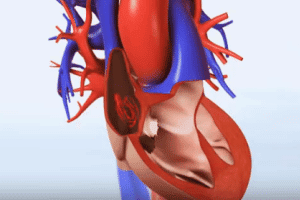
NSAIDs Risk Of Heart Attack Or Stroke. The warning label on non-aspirin, nonsteroidal, anti-inflammatory drugs (NSAIDs) is being revised to reflect an increased risk of heart attack or stroke. In a Safety Alert issued July 9, 2015, the U.S. Food and Drug Administration (FDA) announced that the warning will be strengthened following a review […]

NSAIDs Risk Of Heart Attack Or Stroke. The warning label on non-aspirin, nonsteroidal, anti-inflammatory drugs (NSAIDs) is being revised to reflect an increased risk of heart attack or stroke. In a Safety Alert issued July 9, 2015, the U.S. Food and Drug Administration (FDA) announced that the warning will be strengthened following a review of new safety information. The FDA first added a boxed warning to NSAID labels in 2005 describing the risk of heart attack and stroke. Eric Pahon, spokesman for the FDA, told NBC News “They used to say they might cause risk of heart attack or stroke. Now we are saying they do cause increased risk of heart attack and stroke.”
Common NSAIDs include popular over-the-counter (OTC) drugs such as Advil, Motrin, and Aleve, as well as prescription medications including Celebrex. The warning affects all NSAIDs except for aspirin, which is commonly used to reduce the risk of heart attack. “Balance the benefits of NSAIDs with the possible risks and weigh your options. If you take low-dose aspirin for protection against heart attack and stroke, you should know that some NSAID, including ibuprofen and naproxen, can interfere with that protective effect,” the FDA wrote, according to NBC News.
The new label will warn patients that NSAID may increase the risk of stroke or heart attack in the first few weeks; using the painkiller for longer periods may increase this risk. Evidence suggests that the risk increases with higher doses. The revised label will also reflect that patients with or without heart disease or other risk factors may face an increased risk of stroke or heart attack with NSAID use, although patients with risk factors or heart disease are more likely to experience these events. The FDA notification indicates that, “A large number of studies support this finding, with varying estimates of how much the risk is increased, depending on the drugs and the doses studied.”
The new warning also indicates that the use of NSAIDs may increase the risk of heart failure. The strengthened warning also addresses patients who are taking NSAIDs after having a heart attack for the first time; in these patients, the risk of death is higher in the first year after the heart attack compared to those not taking NSAIDs after a first heart attack.
Contrary to previous thinking, new research suggests that these risks are not the same with all NSAIDs, but there is not enough evidence to determine if one drug is more dangerous compared to others.
The personal injury attorneys at Parker Waichman LLP offer free, no-obligation case evaluations. For more information, fill out our online contact form or call 1-800-YOURLAWYER (1-800-968-7529).


